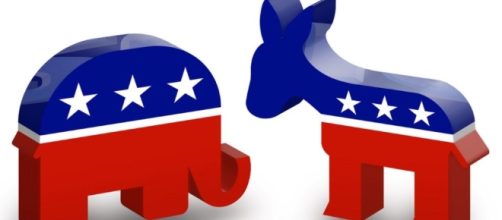In the early days of her campaign, Hillary Clinton attracted typical Democrats. Unions and their members, disenfranchised middle class working Americans who had watched their cost of living increase consistently, young adults struggling to pay off student loans and still make a living, and trying to understand the new technology-driven workplace. Women and African Americans voters were attracted to her past history of supporting Civil Rights and women's rights. But halfway through the election cycle, Hillary devolved into trading insults with Trump and his supporters and attacking Trump's treatment of women.
Americans were already hearing and seeing what Donald Trump was like during televised speeches and forums, and interviews with reporters. Trump regrouped and not only used Hillary's verbal attacks against him and his supporters to draw on a growing public anger over liberal policies, he went after those voters who consistently voted Democrat and had come to feel the party had abandoned them in the past two decades.
State and special elections to date have only been a referendum on Trump and conservatives
In nearly every campaign this year Democratic or Progressive candidates have run on attacking Trump's executive orders, his administration's Muslim ban, immigration policy, and Republican actions on deregulation, climate control, pro-business legislation, and health care.
Most voters already know what Trump and Conservatives in the U.S. Congress and Senate are doing and what their future plans are from news shared on Facebook, Twitter, Reddit, Digg to voters all over the country. The same news, plus commentary can be found on many Democratic and Progressive online publications like Think Progress, Medium, Daily KOS, and the Center for American Progress to name a few. The lack of details on what Democrat and Progressive candidates would do differently has allowed Trump and Republicans along with special interest groups to retain or win those seats. The conservative message about Nancy Pelosi, abortion, and a runaway liberal agenda are still working.
Democrat & Progressive candidates must develop alternative solutions to conservative policies
The liberal ideology has become anathema to many voters. Following the election, it became apparent that African Americans, rural Americans, and middle class working families felt abandoned. With voters now seeing first hand that Trump and Republicans are not going to change the status quo and that they lied throughout the 2016 campaign, there may be a willingness to at least listen to alternate ideas and solutions. More malicious attacks against Trump 'won't work, just like they didn't work for Hillary. Voters want specifics on how Democrats and Progressives would counter what Republicans are doingThe concerns and issues vary from region to region across the country.
But one thing is for sure, Democrats and Progressives with their 'one size fits all' agenda and ideology has made many voters feel left out in the cold.
Health care, social security, Medicare, and Medicaid are high on Americans' list of priorities
Few people were happy being forced to get coverage under the ACA and being penalized if they didn't, especially when there were income based alternatives like health care clinics and free prescription programs that would have been more affordable for young single adults and married couples. The ACA's single-minded approach towards birth control angered religious fundamentalists. This made it easy for Trump and Republicans to get elected by promising they could come up with something better.
The elderly and disabled, now facing a Republican Congress and Senate, don't know if they will continue to have decent Medicare or Medicaid coverage, end up homeless, or if the quality of nursing homes will degrade. The question is, how will Democrats and Progressives proceed in quelling those and other fears Americans are facing? Or will they continue with the same rhetoric Americans have heard for years and which solved nothing?
Democrats and Progressives must reach out to 'all' Americans if they hope to beat Republicans
Rural voters in North and North Eastern, Western, and some Southern states told reporters they'd heard little or nothing about Hillary Clinton and the issues she ran on during the election.
Cable and satellite television reception and fast internet service is rare or non-existent in ruraI communities so voters got most of their information through listening tours and tens of millions of pamphlets that painted left and centrist candidates as turning the country over to immigrants here illegally and Muslim terrorists, that they would overturn their second amendment rights, and remove all restrictions on abortion. And Trump blamed Hillary and Democrats alone for American manufacturing jobs going overseas. Democrat and Progressive candidates, on the other hand, put much of their time and energy on voters in large sprawling urban areas, states with large numbers of immigrants, and big manufacturing hubs with large union memberships. Candidates must start treating all Americans as if they are "all" part of the 'human community.'


